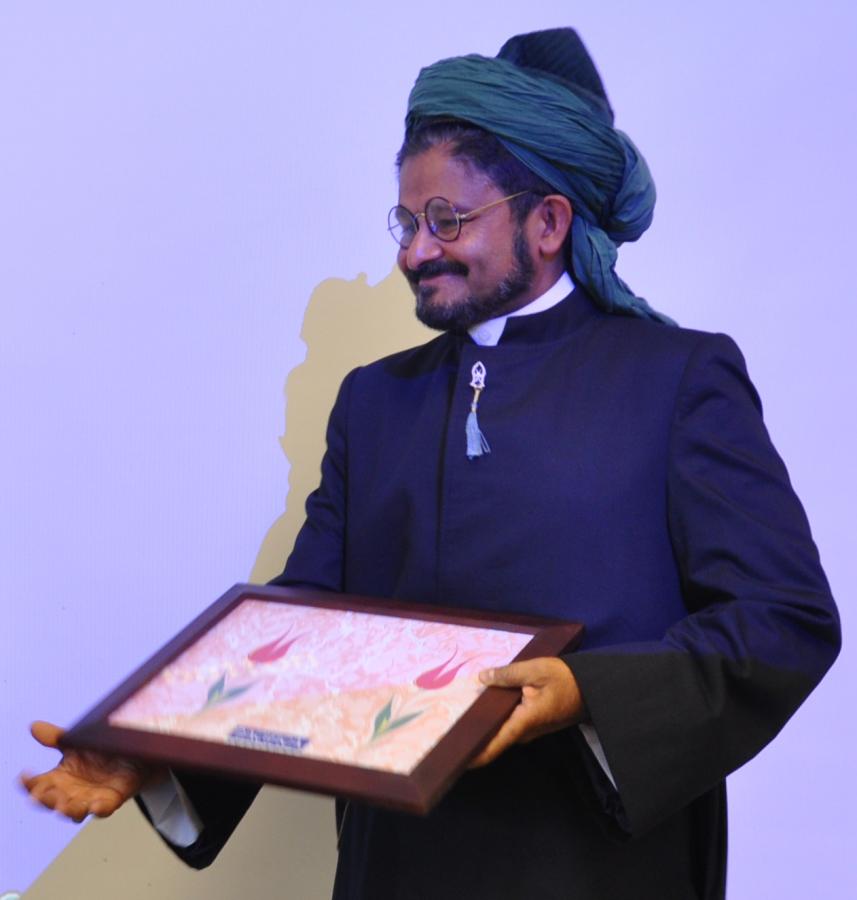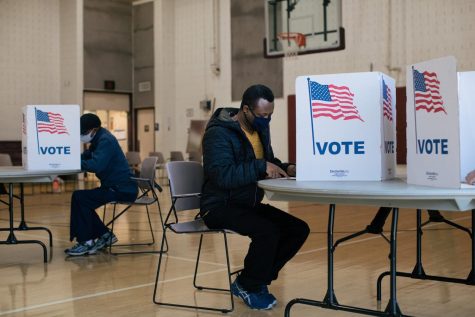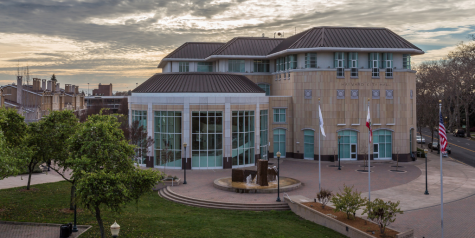Sufi thinker urges pro-west attitude
Maruf Khan said Muslims need to abandon anti-western attitudes.
October 23, 2014
In the wake of the recent ISIS threat, Maruf Khan, a member of the Naqshbandi Sunni Sufi Order in the Bay Area, asked audience members to abandon anti-western attitudes and consider its positive effects.
The Bay Area Cultural Connections, Pacifica Institute, in Albany, Calif., held a community brunch on Sunday, where Khan delivered his controversial speech on what he calls “the most pressing problem in the Islamic world.”
Khan claims that the “state of denial, [the] blaming of others conspiring against Islam.”
He asked for Muslims to take responsibility for the problems in their own society, especially in the radical movements of ISIS and Al-Qaeda who believe the west is the sole cause of all of Islam’s problems.
According to him, to have progress in the Middle East the anti-western attitude must be replaced with a pro-western one. “If we become pro-west, do we win or do we lose?” asked Khan.
Never look down on a religion because every religion is the same to God based on the devotion.
— Maruf Khan
Khan says that a pro-western mentality would remove any room for radicalism and extremism, citing formerly British dominated countries like Malaysia as examples of more moderate societies.
He went on to list the times when western civilization had given support to the Islamic world: President Ford sending free food during the Bangladesh Famine and the western world coming to Bosnia’s aid during the Bosnian War.
Discussion remained civil and passionate as the community members were allowed to discuss and criticize Khan’s points during a question and answer period. Some disagreed with Khan’s remarks about the term ‘pro-west’, and defended their positions.
One woman, who did not share her name, said that asking the Islamic world to cast out all of the negative effects the west had on Islam over centuries of colonialism and western involvement isn’t as easy as it seems.
She argued that especially with the years of U.S. military presence in the Middle East, it seems difficult for the community to forget all past tension between the west and the Middle East.
Others agreed with the notion that Islam is being far too critical of the west.
A man named Fazil Yousuf stood up and stated that during the weekly Friday prayer sermon there is a lack of discussion of the violence in Islam.
When they do mention, it however, it’s blamed solely on the military presence of the west. His concern wasn’t being pro-west or anti-west but rather, discussing ways to stop killing in the Islamic world.
“Killing thousands of people in the name of religion…we never want to take a look at ourselves: What do I have to do? What am I getting out of this world? Is there some moral duty that I have to speak up?” said Yousuf. “We ought to do something rather than blaming others.”
Khan listed his criteria for “Good Muslims” as ethical, tolerant, civilized and spiritualistic as opposed to ritualistic, he claimed.
Khan presented his list of who he believes are the best Muslims, starting with the spiritual and mystic Sufis, then Shias, then pro-western Muslims and then the historical figures in Islam’s past.
“Never look down on a religion because every religion is the same to God based on the devotion,” said Khan, which is a virtue he was taught by his Sufi parents.
Khan qualified his controversial statements by admitting these are generalizations and observations primarily based on personal experience. However, he stated that he remains certain that these qualities are vital to changing the Islamic community for the better.
Occasionally he’d jump between the terms ‘generalization’ and ‘objective’ which at times muddled up his intentions, especially to some of the community members.
Fatih Ferdi Ates, director of the Pacifica Institute, moderated both Khan’s introductory lecture and the community conversation.
The Pacifica Institute holds lectures and community discussions several times a year with very similar topics.
For more group conversations and future events, be sure to visit http://pacificasv.org.
















